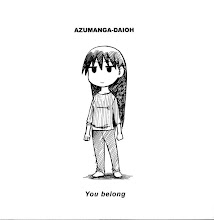The review of the original series can be found here.
The Paris Chapter begins a bit after the end of the original series, Chiaki has overcome his fear of flying, with Nodame’s help, and both find them selves in Paris Paris
This series was too short, which would be a detriment if there wasn’t going to be another series premiering in the next few months. The reason for the 11 episode series is unknown and a bit confusing. The series didn’t cover much in the way of story progression. It all seemed like build up for the next series, which will hopefully be longer. I was pleased when this series was announced, because I had enjoyed the original. While there is already a live action drama version of the series, I find the anime more entertaining. (Don’t get me wrong the drama is pretty good and well done). One thing I did miss were the zany side characters, of which are lacking in Paris
Aside from there feelings it was a fun series to watch, as with the original it was fun to spend time with these lovable characters even if they didn’t do much. The series main focus seemed to be on Chiaki and his growing presence in the world of orchestra conducting. In the end we see his first successful concert with a ragtag Parisian orchestra. And we see Nodame regain her confidence and make her own small impact on the European classical scene. The comedy was low key like it was in the original and the romance was low key as well, with one memorable moment were Nodame turns serious about her feelings and begins punishing Chiaki in Street Fighter fashion. One thing that stood out in this series was Nodame’s otaku tendencies. This might be deliberate in the writing to show that she is clinging more strongly to her national identity in a foreign land. It is also used as a way for her to more easily interact with some of the fellow students.
All in all this series is worth viewing if you are a fan of the franchise, but it should mostly be viewed as a segue way into the next series, which will hopefully be more complete. There is a possibility that this series can also be used as an introduction into the story, as there are few references to the original series. For the most part you only need to know who Chiaki and Nodame are. Stresemann shows up rarely and after the first 2 episodes or so no one else from the original appears. They only touch lightly on Chiaki’s past problems and even less so on the events of the original series. The art style remains consistent with that of the original but there seems to be a lack of the orchestral suites played in part or whole as we found in the original series. Where the original took a lot of time showing the concerts this one only had a few moments. The CG generated hand movements of the orchestra members is also more noticeable in this series compared to the original. This may be due to less spending on that aspect than before, but it is more noticeable when they use motion capture effects to accurately portray the real use of the instruments, which is still cool that they take the time and consideration to show that.







No comments:
Post a Comment